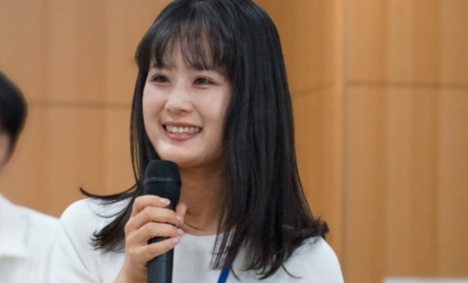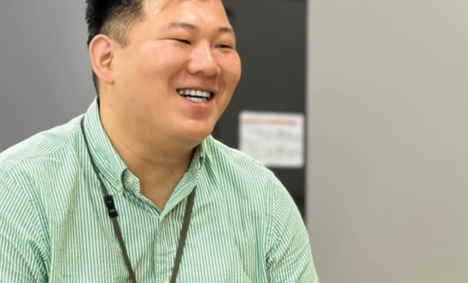
The adoption of Diversity, Equity, and Inclusion (DEI) corporate initiatives continues to expand. In fact, in a 2021 survey conducted by US Fortune/Deloitte, 61 percent of CEOs confirmed that “DEI has been built into [their] strategic goals”1 and that 55 percent have already incorporated DEI as a corporate strategy.1
Matt Bush, Culture Coaching Lead at Great Place to Work, reiterates that there are many benefits to fostering a diverse and inclusive workplace, including “higher revenue growth, readiness to innovate, and higher employee retention.”2 However, data from Google suggests that although APAC is comprised of diverse ethnicities and cultures, “APAC respondents scored lowest on questions related to DEI topics” but are curious about DEI, with a 45 percent regional growth in search interest for topics like gender equality, cultural diversity, and inclusive education.3
The British School in Tokyo’s core ethos: International Mindedness
In the wake of these developments, Justin Bowdidge, Human Resources Manager of The British School in Tokyo, sheds light on DEI through the lens of the school’s core ethos: international mindedness.
The British School in Tokyo (BST) is the only school in Japan offering the British national curriculum and currently boasts a student body of over a thousand.< /br> Bowdidge emphasizes that as an international school comprised of around 65 nationalities, they are in a great position to help foster an environment where international mindedness is valued from a very young age.
DEI essentially embraces differences, encouraging equal involvement and support regardless of race, gender, age, nationality, religion, beliefs, and orientation. International mindedness is much like advocating DEI wherein it can be equated to “an openness to try and understand the world from a perspective of inclusion,” according to Bowdidge.
Empathy and openness to difference
To become internationally-minded, Bowdidge and the teachers at BST reinforce the importance of empathy to their students, as well as the idea that although cultures may be different from yours, there is no inherent hierarchy between them and that this difference should be “embraced, explored, and celebrated”.
He relates Dunbar’s number to a call to action for us to extend our empathy beyond our own social spheres.
Anthropologist Robin Dunbar posits that we, as humans, possess a cognitive limit of maintaining stable relationships up to a maximum of 150 people - that relating with more than 150 people would be cognitively challenging.4 However, at BST, they strive to combat that numerical limit by raising awareness to not only other cultures outside of one’s immediate social sphere, but by also providing a means to interact with others and experience things that are different from the usual and are considered regular.
With the aim of extending awareness of others, BST incorporates activities like rice planting, tea harvesting, and frequently encourages social interaction with other students from regional areas outside of Tokyo.

The role of language and bilingualism in cross-cultural understanding and international mindedness
As the philosopher, Ludwig Wittgenstein, once said, “the limits of my language mean the limits of my world.”
It comes as no surprise that language plays a huge role in bridging cross-cultural understanding since learning a language implicitly involves learning the culture embedded in that language. Through language learning, you “open [your] mind to the ways of other peoples and increase the opportunities for cross-cultural understanding”5 and that “behaviors as empathy, flexibility, tolerance, and ambiguity, all are furthered by the development of proficiency in a second language.”6
Fortunately, in Japan, bilingualism is in high demand. Bowdidge points out that in Tokyo, there is most certainly a massive interest in acquiring bilingual ability across the entire age spectrum and that some Japanese companies have taken strides to promote cross-cultural understanding in the workplace through the active recruitment of bilingual candidates. Benjamin Cordier, Managing Director of RGF Professional Recruitment Japan, further reinforces this, stating that bilingual job seekers are in high demand in Japan, with companies willing to pay a premium for that bilingual capability. Cordier remarks that bilingualism, and therefore, improved cross-cultural understanding and international mindedness, is a positive step towards the adoption of more DEI initiatives in Japan.
Empathy and openness to difference
To become internationally-minded, Bowdidge and the teachers at BST reinforce the importance of empathy to their students, as well as the idea that although cultures may be different from yours, there is no inherent hierarchy between them and that this difference should be “embraced, explored, and celebrated”.
He relates Dunbar’s number to a call to action for us to extend our empathy beyond our own social spheres.
Anthropologist Robin Dunbar posits that we, as humans, possess a cognitive limit of maintaining stable relationships up to a maximum of 150 people - that relating with more than 150 people would be cognitively challenging.4 However, at BST, they strive to combat that numerical limit by raising awareness to not only other cultures outside of one’s immediate social sphere, but by also providing a means to interact with others and experience things that are different from the usual and are considered regular.
With the aim of extending awareness of others, BST incorporates activities like rice planting, tea harvesting, and frequently encourages social interaction with other students from regional areas outside of Tokyo.

What lies beyond the horizon of cultural identity
In the International Mindedness Symposium between the British School in Tokyo, Temple University, and Showa Women’s University held on July 10, 2021, keynote speaker Kyoko Yonezawa of Wieden+Kennedy, raises an interesting point about culture. She says that within the discourse of culture lies your identity. Culture only forms one aspect of your identity and therefore, although you come from the same culture, it would be futile to assume that one action or idea would be interpreted in exactly the same way.
Your identity and everyone else’s identity are shaped by various external and internal influences that are unique to that person: culture, social status, reference groups, family, perception, memory, motives, personality, mood, etc. All these factors will interact and come into play, producing the unique decisions and behaviors that will also affect everyone else’s unique decisions and behaviors.5
Therefore, when dealing with DEI initiatives, it's also imperative for companies to recognize the need to avoid generalizing or segmenting cultural labels and behaviors. Instead, these initiatives should focus on fostering an environment where labels do not exist because, at the heart of it, DEI is not just about embracing others, it is also about recognizing and celebrating individuality.
Sources:
https://www2.deloitte.com/us/en/pages/chief-executive-officer/articles/ceo-survey.html 1
https://www.greatplacetowork.com/resources/blog/why-is-diversity-inclusion-in-the-workplace-important 2
https://www.thinkwithgoogle.com/intl/en-apac/future-of-marketing/management-and-culture/how-inclusion-and-equity-lag-behind-diversity-in-apac/ 3
https://www.sciencedirect.com/science/article/abs/pii/004724849290081J?via%3Dihub 4
Citron, James. Can Cross-Cultural Understanding Aid Second Language Acquisition? Toward a Theory of Ethno-Lingual Relativity, 1995. 5
Fantini, A.E. Becoming better global citizens: The promise of intercultural competence, 1993. 6
Hawkins, Del I, and David L. Mothersbaugh. Consumer Behavior: Building Marketing Strategy. Boston: McGraw-Hill Irwin, 2010.7

Working at a global company has many advantages, not only for those who want to work globally and those who want to make use of their language skills, but also for people who strive to Unleash their Potential seek their own potential and have a healthy work-life balance.
RGF Professional Recruitment Japan supports the recruitment hiring activities of many of the top domestic and foreign capital companies in Japan. Various excellent companies including foreign and Japanese global companies located in Japan. Therefore, as a result, we can introduce the best career options for each person.to suite all types of career profile.
If you want to work in a global environment or globally, want to work in a place where you can perform more, or want toto a higher level and expand your career options in the future, please contact us. Our experienced consultants will do their best to support your career growth.









